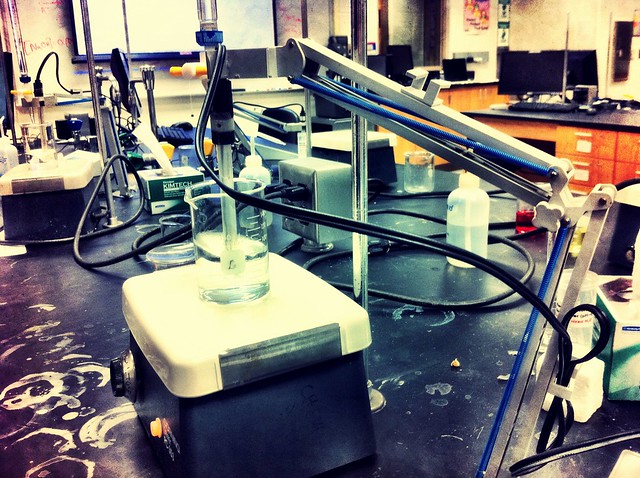
(Image credit: Jack Amick)
When many people think of science, they think of the tools of science, much like the photo of a traditional science lab above shows. They think of beakers, and hypotheses, and labs, and think that this is science. Playing with the tools of scientists does not make one a scientist, or become a scientist. Thinking like a scientist does.
Science is a way of thinking, a way of reasoning about the world. People who reject science, reject reason. Science is not a linear process, it is a dynamic way of thinking and collaborating about the world.
There are flaws with this way of thinking, as there are with all ways of knowing. Science cannot answer ethical questions. Scientific results get fabricated, exaggerated, and misunderstood all the time, since they are produced and understood by human beings. However, the process of reproducing results with additional experiments ensures that, over time, bad ideas get weeded out of what we know to be true about the world. Ideas which are correct get re-inforced by additional experiments.
Teaching science as a series of facts someone else has discovered about the world does not give them the opportunity to learn about the process through which those "facts" were discovered. The process, in this case, is far more important than the result. Our schools need to spend far more time dealing the messiness of the process of science, and less time focusing on the results of the scientific process. Students learn process through practicing it.
We also need to recognize that the standard science lab write-up emphasizes a linear process of science, which does not exist anywhere in the scientific community. Following someone else’s lab to learn how to use the tools of science is fine, but one must actually design experiments for oneself in order to learn the process. We need to de-sitcom science education.
